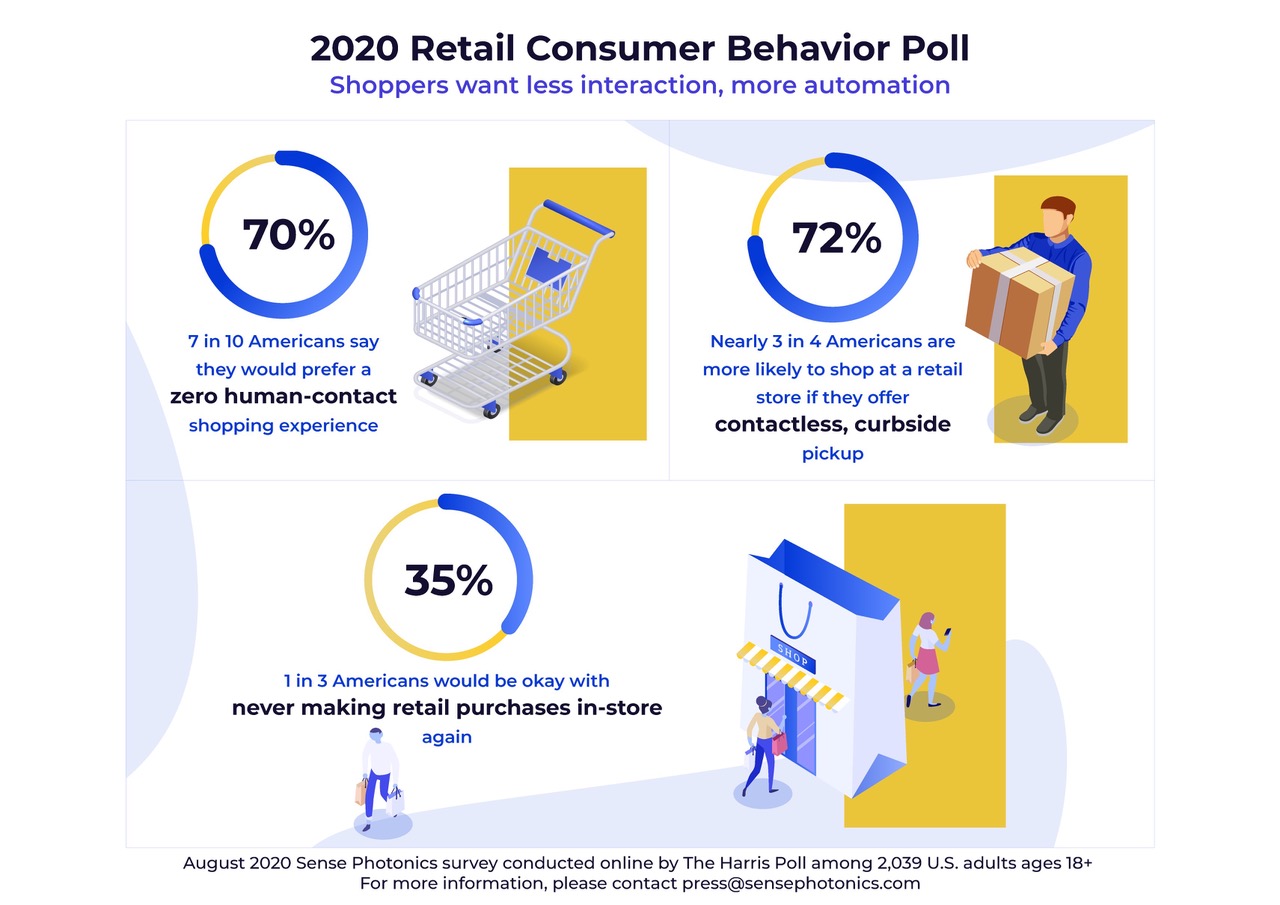The pandemic has seemed to create “radically-altered consumer preferences” in retail shopping experiences, according to a Tuesday press release from 3D vision company Sense Photonics announcing survey results conducted with help from The Harris Poll.
The “radically-altered consumer preferences” show that consumers want to “shop without human interaction,” per the press release. More than one-third of Americans — 35%, to be exact — said they “would be okay with never making retail purchases in-store again,” the survey results showed.
However, 72% of Americans say they’re “more likely” to make the trek to a retail store if they offer “contactless, curbside pickup.” (RELATED: Amazon To Hire 100,000 To Staff New Warehouses, Handle Expected Shopping Surge)

Survey results from Sense Photonics and The Harris Poll released Tuesday. (Image courtesy of Sense Photonics)
“Consumer shopping preferences are shifting and retailers are starting to adapt to a frictionless experience,” said Sense Photonics CEO Shauna McIntyre. She went on to say new technologies, like 3D vision systems developed by Sense Photonics, are “essential to scaling time-sensitive processes like order fulfillment.”
The online survey conducted by The Harris Poll was performed on 2,039 U.S. adults 18 and over.
Throughout the pandemic, brick-and-mortar retail stores have been shifting operations to match consumer preferences, on top of meeting government requirements for combating the novel coronavirus, according to Business Insider.
From department stores like Nordstrom and Macy’s, home improvement stores like The Home Depot and Staples to hobby stores like Guitar Center and Michaels, many retailers are now offering contactless, curbside pickup to compete in a retail space increasingly dominated by e-commerce giants, specifically Amazon, as reported by The Wall Street Journal.
In a fortunate twist of fate for traditional retail sellers, online retailers have struggled keeping pace with demand for products ordered online, causing shipping backlog and delivery delays. International supply chains have been stressed by respective countries’ closing their borders and domestic lockdowns, per Nature.


